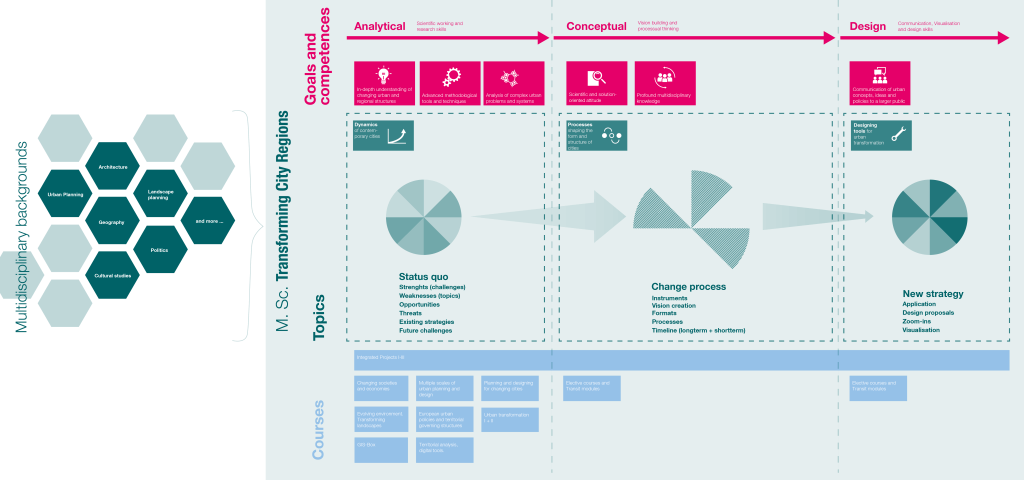Academic Approach
The English taught master programme “TRANSFORMING CITY REGIONS” at RWTH Aachen University was launched in the winter semester 2019/20. The high demand from students from Germany, Europe and, last but not least, the whole world shows that the content orientation of the degree programme towards international transformation processes was well-chosen. Students from the disciplines of architecture, urban planning, landscape planning, civil engineering, geography, and cultural studies have been very successful in the past semesters in dealing with concepts and strategies in urban design and in neighbourhood, city and regional development.
This has involved an intensive examination of the major challenges of transformation – urbanisation in the form of reurbanisation and suburbanisation as well as the reshaping of entire regions, such as the lignite mining region in the Rhineland. Above all, there is agreement that transformation processes can only be successfully mastered if the right instruments, concepts and strategies are applied. And many of these challenges and questions for the future can no longer be answered by looking at the local context, but require an international exchange of experience, as is taking place within the framework of the English taught master programme “TRANSFORMING CITY REGIONS” (TCR).
In times of globalisation and increasing networking, knowledge in dealing with international transformation processes is more important than ever. It not only opens up new career prospects for graduates, but also qualifies them in every respect for the future challenges in the broad field of urban and regional planning.
The teaching results presented in the following show how students have dealt with transformation processes at the various spatial scales and levels – from the neighbourhood, to the city, to the region – and how the spatial level can be successfully linked with the strategic level.

